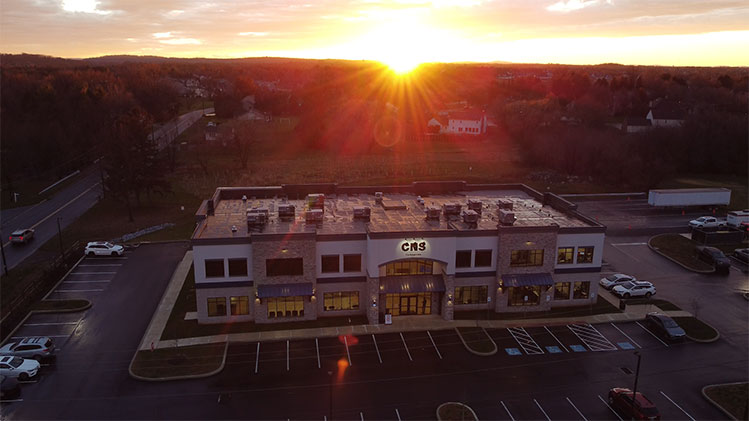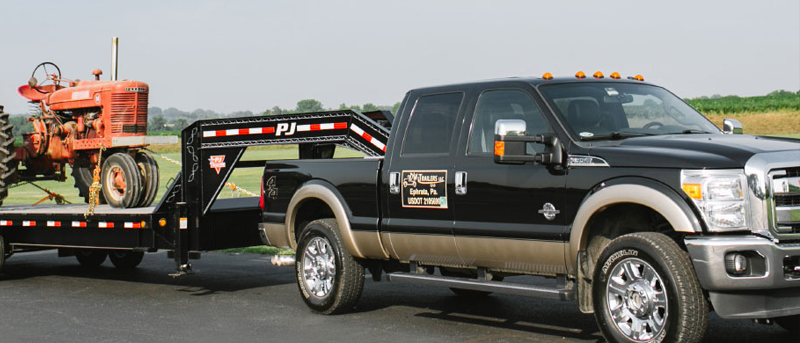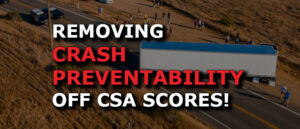Furry Friends Cause Trucking Border Delays At Canadian Border
To prevent reintroduction of rabies carried by dogs into the United States, new CDC regulations require proof of healthy pets at border crossing. Truckers who
We are a team of DOT Compliance and Licensing Professionals helping trucking and transportation companies remain safe, compliant, and profitable.
CNS or Compliance Navigation Specialists is DOT Compliance company that assists trucking and transportation companies remain DOT Compliant. We are part of a network of companies, CNS Companies, specializing in services related to the transportation, manufacturing, construction, service, education and medical industries.

A full-scale DOT Compliance Program managing a long haul carrier’s safety, compliance, licensing and more.
Learn more >>>
A DOT Compliance Program that keeps motor carriers compliant with the 6 Basic DOT Regulations required of all carriers.
Learn more >>>
Our Short-Haul/Construction Program is a full-scale program designed for private carriers that do not haul for-hire.
Learn more >>>
Our most comprehensive DOT Compliance Program, operating as your company’s off-site Safety Director or assisting your current safety personnel.
Learn more >>>
Our Non-CDL Program is a full-scale program managing safety, compliance, licensing and more for moving companies, couriers, landscapers, or any company subject to DOT regulations and does not employ CDL drivers.
Learn more >>>
Our DOT Audit Services cover a number of different types of DOT Audits that new and existing carriers will be subject to.
Our DOT Driver Services help trucking companies and carriers to stay compliant as they grow and hire more drivers.
Our DOT Vehicle Services focus on ensuring your vehicles are compliant with DOT Regulations, which is just as important as your drivers.
Our DOT Services for Special Carriers focus on companies outside of the typical motor carrier, like HAZMAT, Passenger and Bus Carriers.
CNS is part of a group of companies that offer other necessary services for the trucking and transportation industry, such as Commercial Trucking Insurance, CDL Training, Online Training Course, and even Healthcare.
Our DOT Licensing Services will cover you whether you are an existing company or just starting a trucking company. Our DOT Licensing Specialists can help you get up and running and in days with your DOT number, MC Authority, EIN, UCR, IFTA, 2290 HVUT, Fuel Taxes and can even set you up to get your Commercial Driver's License (CDL) with CNS Driver Training Center.
Our DOT Licensing Specialists will help you with every aspect of starting a trucking company. All you need to do is choose a name for your trucking company.
You will need to ensure your DOT Number, MC Authority, Vehicle Registration, etc. is all set up properly when you start your trucking business.
Our Licensing Specialists can help with all aspects of filing and renewing licenses, fuel taxes, etc.
CNS is part of a group of companies that offer other necessary services for the trucking and transportation industry, such as Commercial Trucking Insurance, CDL Training, Online Training Course, and even Healthcare.
To prevent reintroduction of rabies carried by dogs into the United States, new CDC regulations require proof of healthy pets at border crossing. Truckers who
CNS or Compliance Navigation Specialists is DOT Compliance company that assists trucking and transportation companies remain DOT Compliant. We are part of a network of companies, CNS Companies, specializing in services related to the transportation, manufacturing, construction, service, education and medical industries.
CNS Companies is a network of companies specializing in services related to the transportation, manufacturing, construction, service, education and medical industries. Our DOT Compliance division is handled by Compliance Navigation Specialists, CNS Insurance handles Commercial Truck Insurance, CDL training is managed by the CNS Driver Training Center and healthcare is managed by CNS Occupational Medicine.
We are a team of DOT Compliance and Licensing Professionals helping trucking and transportation companies remain safe, compliant, and profitable.
CNS or Compliance Navigation Specialists is DOT Compliance company that assists trucking and transportation companies remain DOT Compliant. We are part of a network of companies, CNS Companies, specializing in services related to the transportation, manufacturing, construction, service, education and medical industries.

A full-scale DOT Compliance Program managing a long haul carrier’s safety, compliance, licensing and more.
Learn more >>>
A DOT Compliance Program that keeps motor carriers compliant with the 6 Basic DOT Regulations required of all carriers.
Learn more >>>
Our Short-Haul/Construction Program is a full-scale program designed for private carriers that do not haul for-hire.
Learn more >>>
Our most comprehensive DOT Compliance Program, operating as your company’s off-site Safety Director or assisting your current safety personnel.
Learn more >>>
Our Non-CDL Program is a full-scale program managing safety, compliance, licensing and more for moving companies, couriers, landscapers, or any company subject to DOT regulations and does not employ CDL drivers.
Learn more >>>
Our DOT Audit Services cover a number of different types of DOT Audits that new and existing carriers will be subject to.
Our DOT Driver Services help trucking companies and carriers to stay compliant as they grow and hire more drivers.
Our DOT Vehicle Services focus on ensuring your vehicles are compliant with DOT Regulations, which is just as important as your drivers.
Our DOT Services for Special Carriers focus on companies outside of the typical motor carrier, like HAZMAT, Passenger and Bus Carriers.
CNS is part of a group of companies that offer other necessary services for the trucking and transportation industry, such as Commercial Trucking Insurance, CDL Training, Online Training Course, and even Healthcare.
Our DOT Licensing Services will cover you whether you are an existing company or just starting a trucking company. Our DOT Licensing Specialists can help you get up and running and in days with your DOT number, MC Authority, EIN, UCR, IFTA, 2290 HVUT, Fuel Taxes and can even set you up to get your Commercial Driver's License (CDL) with CNS Driver Training Center.
Our DOT Licensing Specialists will help you with every aspect of starting a trucking company. All you need to do is choose a name for your trucking company.
You will need to ensure your DOT Number, MC Authority, Vehicle Registration, etc. is all set up properly when you start your trucking business.
Our Licensing Specialists can help with all aspects of filing and renewing licenses, fuel taxes, etc.
CNS is part of a group of companies that offer other necessary services for the trucking and transportation industry, such as Commercial Trucking Insurance, CDL Training, Online Training Course, and even Healthcare.
To prevent reintroduction of rabies carried by dogs into the United States, new CDC regulations require proof of healthy pets at border crossing. Truckers who
CNS or Compliance Navigation Specialists is DOT Compliance company that assists trucking and transportation companies remain DOT Compliant. We are part of a network of companies, CNS Companies, specializing in services related to the transportation, manufacturing, construction, service, education and medical industries.
CNS Companies is a network of companies specializing in services related to the transportation, manufacturing, construction, service, education and medical industries. Our DOT Compliance division is handled by Compliance Navigation Specialists, CNS Insurance handles Commercial Truck Insurance, CDL training is managed by the CNS Driver Training Center and healthcare is managed by CNS Occupational Medicine.

If you’ve got the vision and desire to start a hotshot trucking company, now is the time to make that vision reality.
Hotshot trucking is simply hauling for a single customer that is needed in expedited fashion. Hotshot carriers are usually short-haul trucking operations that specialize in delivering time-sensitive, project-critical loads.
They are often associated with commercially driving an F-350 pulling a gooseneck or 5th wheel trailer to haul construction materials, cars, sheds, horses, etc.
If you are looking to haul commercial loads, it is easier to get hired anywhere with a Class A CDL. A clean driving record and a CDL gives your hotshot business a starting point to build your reputation as well as your customers.
5 Reasons to Get Your CDL When Hauling Hotshot
However, starting any new business can be expensive, time-consuming, and will likely overwhelm you with paperwork and documentation before you even pick up a load.
That’s where CNS can help! As a leader in the trucking industry, we’ve helped many hotshot trucking startups and know what makes new companies successful.
We’ve outlined the basic steps you’ll need to take to start a trucking company and the services we offer individually or as a fully manage DOT Compliance Program.
Before the process begins, be sure to make a detailed business plan that lists expenses (your salary, purchasing or leasing a vehicle and trailers, licensing, insurance, and registration) and revenue expected in your business.
As a new venture hotshot trucker there are many start-up requirements you may need, including:
If you are a short-haul (intrastate) trucking carrier, you mostly stay within a 150 air-mile radius and report back to the same location to end your day. These operations usually function locally, and it is an attractive way to bring in new drivers who want to be home each night.
However, you may have extra flexibility in where and what you can haul. You will need a CDL to haul across state lines (interstate) or outside of the short-haul barrier, which leads to a few more requirements before getting started.
Before even applying for your own LLC, it is important to make sure you qualify to be a truck driver.
This is a requirement mandated by federal law for anyone planning to drive a commercial motor vehicle (CMV), including hotshot drivers.
Be sure to schedule a DOT physical exam from a trusted medical examiner. A DOT physical is a test of your general health, mental, and emotional well-being and will include:
We offer DOT exams at our location in Lititz, PA with our Certified Medical Examiner (CME), and we also have mobile DOT physicals available.
Next, you will need to obtain an Employer Identification Number (EIN). An EIN is a unique nine-digit number assigned to businesses in the United States by the Internal Revenue Service.
You will use this number to file your business tax return, open a business bank account, and receive payments from customers.
Our DOT Licensing Specialists can assist you in setting up your EIN, no matter what state you are in. In addition, we can help you decide what type of business you want to identify as, whether it be an LLC, Partnership, Corporation, S-Corp, etc.
Depending on what your company will be doing, you may need a USDOT Number or both a USDOT number and a Motor Carrier (MC) Number.
Companies that operate commercial vehicles transporting passengers or hauling cargo in interstate commerce must be registered with the FMCSA and must have a USDOT Number.
You will also need a USDOT Number if you plan to haul hazardous materials commercially intrastate for types and quantities requiring a safety permit.
In addition, companies are required to have both a DOT number and an interstate operating authority (MC Number) if they do any of the following tasks:
As you start your own authority and obtain your DOT Number and/or MC Number, the most important requirement to activate them is commercial trucking insurance.
For commercial insurance, there are 5 critical hotshot insurance coverages needed to protect your business that can be customized for your specific needs.
As a new venture hotshot trucker there are many start-up licensing requirements you need, and the licensing rules require companies to meet certain insurance liability requirements.
For instance, primary auto liability, also known as Bodily Injury Physical Damage (BIPD), is required by the FMCSA at a minimum coverage of $750,000 to obtain your MC authority.
The 5 critical insurance coverages needed for your hotshot company are:
There are few insurance providers that will give a new trucking company a commercial insurance quote. We find that Progressive usually offers the best startup insurance quotes.
Non-trucking Liability: All time spent in a truck isn’t billable, but it is insurable. When you use your truck for non-business purposes, you need insurance coverage. Non-Trucking Liability offers liability coverage for property damage or bodily injury to a third party when trucks are being used for non-business purposes.
Cargo coverage ensures the contents of the trailer, temperature-control machinery, and other appliances or accessories that keep cargo secure. Coverage is custom and calculated based on the type of commodities hauled and the requirements of the shipper.
Physical damage coverage: Any time you drive, you are exposed to risk. Your truck could be damaged in an accident or from another disaster. It could be stolen or vandalized. Any of these issues could put your truck out of commission and compromise your business. While not required on your truck unless your vehicle is leased, it does offer 24-hour collision coverage for damages to your tractor or trailer.
Uninsured motorist coverage: If your truck/trailer is damaged or you sustain injuries in an accident that is caused by a party that does not have sufficient Auto Insurance coverage, this coverage will pay for your injuries.
A BOC-3 filing is required in the United States to activate your Motor Carrier Authority. This filing assigns legal agents if court papers ever need to be served to your company by an outside state. It is required before federal operating authorities can be granted in the U.S.
CNS, unlike many of our competitors, does not charge an annual fee for a BOC-3 filing.
This agreement is between the lower 48 states and Canadian provinces, and it simplifies reporting of fuel use by motor carriers operating in multiple jurisdictions. Alaska, Hawaii, and Canadian territories do not participate.
An operating carrier with IFTA receives an IFTA license and two decals for each qualifying vehicle. The carrier files a quarterly fuel tax report. This report determines the net tax or refund due and redistributes taxes from collecting states to states where it is due.
Keeping track of all the requirements, receipts, mileage logs, etc. can be complicated, which is why our DOT Compliance Specialists will file your IFTA fuel taxes for you.
Now you need to become compliant with the FMCSA. These items need to be maintained through the year.
You are required to keep impeccable records in the event of an audit. These driver files include MVR reports, previous employer history and inquiries, PSP reports, and more.
If you have a commercial driver’s license, you will need a pre-employment drug test and be enrolled in a DOT drug and alcohol consortium.
We at CNS are excited for your new venture to become reality. We’re here to help you navigate the path towards starting your hotshot trucking company.
Our DOT Essentials Program is a great place to start and our DOT compliance specialists are on hand to get you up and running as quickly as possible. The DOT Essentials Program includes many of the above-mentioned filings and registrations and is one of the most commonly used DOT Compliance Programs by our clients.

To prevent reintroduction of rabies carried by dogs into the United States, new CDC regulations require proof of healthy pets at border crossing. Truckers who

This means future regulations will “become clearer” or “stuck in the courts” for years. On June 28, 2024, the U.S. Supreme Court overturned the Chevron

ATRI’s Research Advisory Committee (RAC) selected a diverse set of research priorities designed to address some of the industry’s most critical issues including workforce development,

CNS can help with our Roadside & Incident Report Management service where a team of DOT Compliance Specialists will assess the Department of Transportation safety records
Our DOT Compliance Programs ensure it is your top priority and keeps your business running.
Receive the latest transportation and trucking industry information about FMCSA and DOT Audits, Regulations, etc.

To prevent reintroduction of rabies carried by dogs into the United States, new CDC regulations require proof of healthy pets at border crossing. Truckers who

This means future regulations will “become clearer” or “stuck in the courts” for years. On June 28, 2024, the U.S. Supreme Court overturned the Chevron

ATRI’s Research Advisory Committee (RAC) selected a diverse set of research priorities designed to address some of the industry’s most critical issues including workforce development,
Join our monthly newsletter and stay up-to-date on trucking industry news and receive important compliance and licensing tips.
Join our monthly newsletter and stay up-to-date on trucking industry news and receive important compliance and licensing tips.